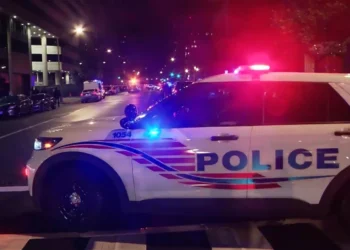In 2014, Marine veteran J.J. Hanson was diagnosed with terminal brain cancer and given four months left to live. Around the four-month mark of his diagnosis, “Hanson had plunged into a deep depression,” according to the Times Union. He lost his ability to read, write, talk and walk and was suffering seizures.
Miraculously, experimental treatment and surgery gave Hanson an additional three years of life, during which he and his wife welcomed two sons. But had Hanson have had access to lethal prescriptions to end his own life during those first few months — he may have taken them, so says his wife Kristen.
“J.J later admitted that during his illness, he sometimes felt such despair that he may have taken a lethal prescription had it been legal in New York, where we lived, and if he had it in his nightstand during his darkest days,” Kristen said in an op-ed highlighting her and her husband’s fight against assisted suicide.
But now, those lethal drugs may soon be available in New York.
The state assembly passed a bill 81 to 67 to legalize assisted suicide. According to the legislation, a “mentally competent, terminally ill adult with a prognosis of six months or less to live may request medication from their treating physician that they can decide to self-administer to hasten the patient’s death…”
The legislation now heads to the Democrat-led state Senate, though Republican Sen. George Borrello told The Federalist there’s “no indication that this is going to be taken up here, however, as we are now voting on budget bills.”
Borrello explained that while the legislation could be voted on before the session ends in a little over a month, “we really won’t know for sure until it hits a committee agenda and then from there it would have to go on to a full Senate vote, so there’s still a process ahead of the Senate.”
If the legislation is not voted on this session it would have to be re-introduced during the next session, Borrello explained.
“If this comes up to a vote I will be voting ‘no,’” Borrello explained. “There’s several problems with this legislation. In other countries this has kind of expanded beyond people that are terminally ill. You have countries where people have severe depression and they decide they don’t want to continue on with life for whatever reason and they can end their life.”
Borrello also expressed concern about the possibility of family members coercing a loved one to end their life to save financial resources.
“Now someone could have that ability — imagine a child or grandchild going to their grandfather and encouraging, for financial reasons, them to commit suicide,” Borrello said. “And this is disturbing to think that we would condone that as elected officials whose duty is to protect life.”
Borrello also raised concerns about who would be accountable for the drugs if the patient dies naturally before the lethal prescription could be administered.
“I’m very concerned about the unknowns on top of my moral oppositions.”
New York State Assemblyman Anil Beephan, who voted “no” on the legislation, told The Federalist the “passage of the Medical Aid in Dying Act represents a deeply concerning departure from our longstanding commitment to protect and preserve human life.”
“While advocates present this measure as an act of mercy, it risks normalizing the notion that ending life is a viable response to suffering,” Beephan told The Federalist. “This legislation invites the potential for coercion, particularly among the elderly, disabled, and economically disadvantaged — those most in need of protection, not resignation.”
“As the bill advances to the Senate, I urge a thoughtful reconsideration of its ethical ramifications and a renewed commitment to policies that reflect compassion through care, not capitulation,” Beephan added.
Brianna Lyman is an elections correspondent at The Federalist. Brianna graduated from Fordham University with a degree in International Political Economy. Her work has been featured on Newsmax, Fox News, Fox Business and RealClearPolitics. Follow Brianna on X: @briannalyman2

















